Trivia Browser
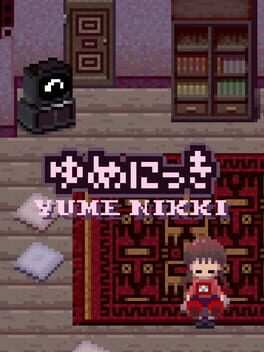
▲
1
▼
 On January 22, 2018, twelve days after its initial release, the English-language Steam version received an update that "Fixed parts of the text translation," focusing on the effects menu. Most of the adjustments were minor, such as altering word choice (e.g. "Change into a faceless ghost" to "Materialize as a faceless ghost."), changing the capitalization of certain words (e.g. "Grow Long Hair." to "Grow long hair."), and changing the tone of the text (e.g. "Change into a witch." to "Become a witch incarnate."). However, more substantial changes were made to five options, changing not only the descriptions, but also the effect names:
On January 22, 2018, twelve days after its initial release, the English-language Steam version received an update that "Fixed parts of the text translation," focusing on the effects menu. Most of the adjustments were minor, such as altering word choice (e.g. "Change into a faceless ghost" to "Materialize as a faceless ghost."), changing the capitalization of certain words (e.g. "Grow Long Hair." to "Grow long hair."), and changing the tone of the text (e.g. "Change into a witch." to "Become a witch incarnate."). However, more substantial changes were made to five options, changing not only the descriptions, but also the effect names:• Get Fat was renamed Fatten, and its description was changed from "You get fat." to "Balloon in size."
• Whistle was renamed Flute, and its description was changed from "Hold the whistle." to "Brandish a flute."
• Talking Head was renamed Severed Head, and its description was changed from "Change into a talking head." to "Be reduced to a severed head."
• Devil was renamed Oni, and its description was changed from "Change into a devil girl." to "Reconstitute as an oni."
• Game Info was renamed Tutorial, and its description was changed from "See the game explanation once more." to "Review the game's tutorial."
Despite these changes, the text boxes that appear when picking up a dropped effect in the Nexus and the completed FC World version of the effects menu still contain the old names. The latter additionally misspells the Midget effect's name as "Miget." Curiously, the incomplete FC World effects menu only contains the old names for the Tutorial option and the Fatten effect; the Midget effect's name is also spelled correctly there.
The Cutting Room Floor articles:
https://tcrf.net/Yume_Nikki#January_22.2C_2018_Update
https://tcrf.net/Bugs:Yume_Nikki#Old_effect_names
https://tcrf.net/Yume_Nikki#January_22.2C_2018_Update
https://tcrf.net/Bugs:Yume_Nikki#Old_effect_names

▲
1
▼
There is seemingly an error in the descriptions of the Daidoji Grapple Strike/Grip Breaker moves in both fighting styles. The moves are simple counters for if Kiryu is grabbed, and act as a way for Kiryu to throw the opponent off of him. However, the descriptions for the moves read "When surrounded by enemies", implying a different function for the move.

▲
2
▼
During the final battle in the Japanese version, Spoiler:a voiceover from Zelda states that the monstrous form that Calamity Ganon assumes is due to his obsession with maintaining his longevity. However, in the English localization, Spoiler:Zelda claims that this form is the result of him abandoning his ambitions for reincarnation and giving into his primal rage, which directly contrasts the Japanese script.
This also opens up a plot hole with Spoiler:Zelda's dialogue in the game's ending, where she says that "Ganon is gone for now" (emphasis added), implying that he will reincarnate anyway (as is the case in other entries, including the game's sequel, The Legend of Zelda: Tears of the Kingdom); in the Japanese version, she simply says that "the threat of calamity has passed."
This also opens up a plot hole with Spoiler:Zelda's dialogue in the game's ending, where she says that "Ganon is gone for now" (emphasis added), implying that he will reincarnate anyway (as is the case in other entries, including the game's sequel, The Legend of Zelda: Tears of the Kingdom); in the Japanese version, she simply says that "the threat of calamity has passed."
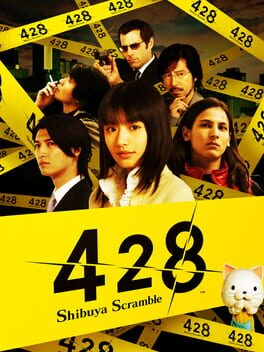
subdirectory_arrow_right 3-Nen B-Gumi Kinpachi Sensei: Densetsu no Kyoudan ni Tate! (Game)
▲
1
▼
 The character Minoru Minorikawa was introduced in 2004 with the release of 3-Nen B-Gumi Kinpachi Sensei: Densetsu no Kyoudan ni Tate!. Debuting in Episode 8, he appears as a reporter for a newspaper, who is looking into the unresolved suicide of a middle school girl named Chiharu Fuyutsuki from 5 years ago (6 by the end of the game). He works alongside the protagonist, who was Chiharu's teacher back then, to uncover the truth behind her suicide.
The character Minoru Minorikawa was introduced in 2004 with the release of 3-Nen B-Gumi Kinpachi Sensei: Densetsu no Kyoudan ni Tate!. Debuting in Episode 8, he appears as a reporter for a newspaper, who is looking into the unresolved suicide of a middle school girl named Chiharu Fuyutsuki from 5 years ago (6 by the end of the game). He works alongside the protagonist, who was Chiharu's teacher back then, to uncover the truth behind her suicide.In 428: Shibuya Scramble, Minorikawa appears once again, but instead of being a minor late-game character, he became one of the leading protagonists of the game. In this game, he is now a freelance journalist who is attempting to help his old friend Toyama (who used to work at the same newspaper company) in gathering enough stories for Toyama's next magazine issue. During the course of 428, Minorikawa begins reminiscing to his investigation of Chiharu's suicide, with the game making a handful of references to the events of Kinpachi Sensei.
However, the English localization for 428 contains a mistranslation within the reference to Kinpachi Sensei, likely because the latter has never been released in the West. The in-game TIPS for Chiharu Fuyutsuki states that "6 years from now", Minorikawa would solve the mystery behind Chiharu's suicide, while the original Japanese makes it clear that it should be "6 years after this incident." The mistranslation would suggest that Kinpachi Sensei is set years after 428, even though this contradicts Minorikawa's journey from working at a newspaper to working freelance.
Minorikawa in Kinpachi Sensei:
https://youtu.be/_aotsLAsB1s?t=325
Chiharu in 428:
https://youtu.be/FotNSImY6Vw?t=6274
428 TIP in Japanese:
https://imgur.com/a/Jl9LDvm
https://youtu.be/_aotsLAsB1s?t=325
Chiharu in 428:
https://youtu.be/FotNSImY6Vw?t=6274
428 TIP in Japanese:
https://imgur.com/a/Jl9LDvm

▲
2
▼
 In the English version, the Super Galick Gun is erroneously referred to as the "Super Garlic Gun". This was fixed in the game's sequel.
In the English version, the Super Galick Gun is erroneously referred to as the "Super Garlic Gun". This was fixed in the game's sequel.
Time stamp to Vegeta (Scouter) performing the Super Galick Gun in BT2:
https://youtu.be/IktcJRY7_BM?t=1533
Time stamp to Super Baby 2 performing the Super Galick Gun in BT2:
https://youtu.be/IktcJRY7_BM?t=3270
Time stamp to Vegeta (Scouter) performing the Super Galick Gun in BT3:
https://youtu.be/zangV_GMrAI?t=96
Time stamp to Super Baby 2 performing the Super Galick Gun in BT3:
https://youtu.be/AXgO29btBdw?t=194
Time stamp to King Vegeta performing the Super Galick Gun in BT3:
https://youtu.be/ei9GoJQw8FM?t=82
https://youtu.be/IktcJRY7_BM?t=1533
Time stamp to Super Baby 2 performing the Super Galick Gun in BT2:
https://youtu.be/IktcJRY7_BM?t=3270
Time stamp to Vegeta (Scouter) performing the Super Galick Gun in BT3:
https://youtu.be/zangV_GMrAI?t=96
Time stamp to Super Baby 2 performing the Super Galick Gun in BT3:
https://youtu.be/AXgO29btBdw?t=194
Time stamp to King Vegeta performing the Super Galick Gun in BT3:
https://youtu.be/ei9GoJQw8FM?t=82

▲
1
▼
 The English prologue for Star Fox Command, when describing Falco's whereabouts after he left the Star Fox team yet again, says:
The English prologue for Star Fox Command, when describing Falco's whereabouts after he left the Star Fox team yet again, says:Brash pilot Falco Lombardi lived as a loner. He drifted from job to job, searching for the same thrill he felt as a member of Star Fox. But his existence was mostly an empty one...something that annoyed him more than he would admit.
This actually omits one small detail from the Japanese script: that Falco went back to hanging out with Katt Monroe and presumably the rest of his old gang, FREE AS A BIRD. Here is the original Japanese text, for comparison:
腕利きパイロットのファルコ・ランバルディは雑用の様な仕事の日々に飽き飽きし、刺激を求めて昔の仲間と共に宇宙狭しと飛び回り…
Which translates to:
A skilled pilot, Falco Lombardi grew tired of mundane tasks and sought excitement, flying through space alongside old comrades in search of thrills.
This adds up, as one can even see Katt's ship in the background of Falco's profile within the prologue.
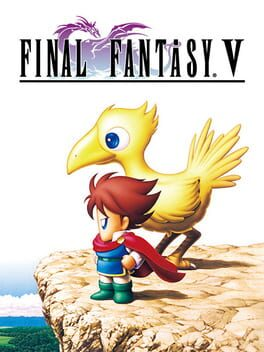
▲
5
▼
 The translation group RPGe's 1998 English translation of Final Fantasy V is considered to be one of the most widely-played and influential fan translations in video game history. It gained this reputation because it released before Squaresoft's first official translation in Final Fantasy Anthology in late 1999, and despite RPGe primarily consisting of inexperienced teenagers, it was regarded as a better translation than the official one, leading many Western players to first experience the game through it.
The translation group RPGe's 1998 English translation of Final Fantasy V is considered to be one of the most widely-played and influential fan translations in video game history. It gained this reputation because it released before Squaresoft's first official translation in Final Fantasy Anthology in late 1999, and despite RPGe primarily consisting of inexperienced teenagers, it was regarded as a better translation than the official one, leading many Western players to first experience the game through it.The first translation attempts stemmed from widespread confusion over Squaresoft not releasing three FF games in the West: Final Fantasy II, Final Fantasy III, and FFV. Their decision to release Final Fantasy VII internationally under its original numbering after Final Fantasy VI was released in the West a few years earlier as the "third" game in the series also contributed to this.
The co-creator of RPGe, named Shadow, was inspired by an incomplete FFII fan translation by users Demi and Som2freak (the latter having later lent Shadow tools to work on FFV), and started translating FFV by making flashcards for which hex code corresponded to each Japanese and English character in the game's data. He promoted his efforts online using photoshopped FFV images and recruited other users to create RPGe, including translator David Timko, and a computer engineering major named Hooie who also asked Japanese instructors at his university to help translate some enemy names. RPGe's plan was to directly edit their English script into the text files of a ROM of the Japanese version, but their work was slow and tedious due to them having little experience with fan translations and being out of touch with fledgling emulation communities. This led to technical issues with their text and sprite editing software, and English characters being poorly displayed under conditions that were originally designed for larger Japanese characters. The group also suffered from internal factionalism, and since Shadow promoted himself as the public face of the project, he found that he could not handle the attention and controversy that came from how seriously he took the project and RPGe itself, seeing the translation effort as a vital service to the Squaresoft fan community. After Demi published a lengthy post parodying Shadow, he "snapped" and left RPGe. The other founders of RPGe would also eventually step down, but other users would take over and start their own work.
A user named Myria, who had argued against RPGe's hex editing approach to no avail, split off from their efforts beforehand to work on a separate translation. Sharing similar setbacks to them, she gradually parsed through the code used to handle the text files, and edited it so it could recognize English characters of different sizes and fit more in a dialogue box. Som2freak helped translate the script for a time, but then left the project after bringing on a new editor, named harmony7, who started heavily revising Som2freak's translations to his chagrin despite seeing several issues with it.
One of the most controversial aspects of the translation was the main character's name. Squaresoft's later English translation named him "Bartz", but RPGe's translation named him "Butz", which many joked sounds like "butts". Myria claimed that Butz was the most accurate translation based on documents and official merchandise using it "the way we'd written it" (for reference, the Romanized version of the Japanese name "バッツ" comes out as "Battsu"). However, Butz is used in real life as an actual German surname with a different pronunciation, the vowel being an "oe" sound like in the English words "put" and "good". Therefore, Bartz would make more sense to match up with the vowels in the Japanese name than Butz, and also fits better as a German first name since Bartz is a pet name for Bartholomäus (Bartholomew).
The bulk of Myria's technical work ended in October 1997, with harmony7 still working to revise the entire script until something unexpected happened. An early version of the fan translation mysteriously appeared on a Geocities website with others taking credit for it. This prompted RPGe to release their work up to that point as "v0.96" on October 17, 1997, with the final patch eventually being released in June 1998. The translation patch received acclaim for its technical aspects and near-professional writing quality, and influenced other players to become translators, including Clyde Mandelin who would later create the English fan translation for Mother 3. Squaresoft never contacted RPGe about the translation, and while their 1999 translation of the game was seen as inferior to RPGe's, Myria would later opine that Square Enix's 2006 translation in Final Fantasy V: Advance was better than theirs. Myria continued hacking and reverse-engineering games and eventually earned a job at an undisclosed major video game company.
2017 Kotaku article:
https://web.archive.org/web/20170428183534/https://kotaku.com/how-three-kids-beat-the-odds-and-translated-final-fanta-1794628286
2021 IGN article:
https://web.archive.org/web/20210508152802/https://www.ign.com/articles/the-untold-drama-and-history-behind-final-fantasy-5s-fan-translation
Butz surname pronunciation:
https://en.wiktionary.org/wiki/Butz#Pronunciation_2
Bartz pet name source from Ancestry.com:
https://www.ancestry.com/name-origin?surname=bartz
Final Fantasy Chrome Figure Collection wiki articles:
https://finalfantasy.fandom.com/wiki/Final_Fantasy_Chrome_Figure_Collection
https://ffmerchandise.fandom.com/wiki/Final_Fantasy_Chrome_Figures_Collection
Ebay listing for Final Fantasy Chrome Figure set including Butz:
https://www.ebay.com/itm/275540207811
https://web.archive.org/web/20170428183534/https://kotaku.com/how-three-kids-beat-the-odds-and-translated-final-fanta-1794628286
2021 IGN article:
https://web.archive.org/web/20210508152802/https://www.ign.com/articles/the-untold-drama-and-history-behind-final-fantasy-5s-fan-translation
Butz surname pronunciation:
https://en.wiktionary.org/wiki/Butz#Pronunciation_2
Bartz pet name source from Ancestry.com:
https://www.ancestry.com/name-origin?surname=bartz
Final Fantasy Chrome Figure Collection wiki articles:
https://finalfantasy.fandom.com/wiki/Final_Fantasy_Chrome_Figure_Collection
https://ffmerchandise.fandom.com/wiki/Final_Fantasy_Chrome_Figures_Collection
Ebay listing for Final Fantasy Chrome Figure set including Butz:
https://www.ebay.com/itm/275540207811
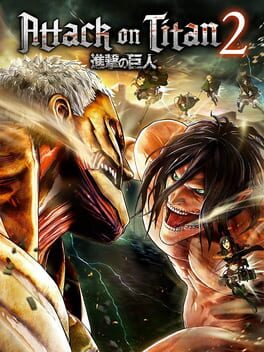
▲
2
▼
The English version of the game mistakenly refers to the character Connie Springer as female in some cases, and similarly mistakenly refers to the character Nanaba as male in the journal entries.
Connie gender discussion:
https://steamcommunity.com/app/601050/discussions/0/1698294337762918570/
Nanaba gender discussion:
https://steamcommunity.com/app/601050/discussions/0/1696043806550777884/
https://steamcommunity.com/app/601050/discussions/0/1698294337762918570/
Nanaba gender discussion:
https://steamcommunity.com/app/601050/discussions/0/1696043806550777884/

▲
3
▼
The character Ultros from Final Fantasy VI’s Japanese name is pronounced as “ortorosu” and was intended to be a reference to Orthos from Greek mythology. When the game was localized, the translator was presumably unaware of this reference and transliterated it as Ultros. Later entries in the series would alternate between calling the character Ultros and Orthos.
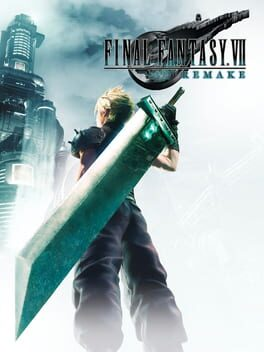
This trivia has been marked as "Not Safe for Work".
It may not be appropriate for all visitors and definitely isn't appropriate for work or school environments.
Click here to unhide it.
It may not be appropriate for all visitors and definitely isn't appropriate for work or school environments.
Click here to unhide it.
▲
4
▼

▲
3
▼
Phoenix Wright: Ace Attorney - Dual Destinies’ English release is known for having many more typos and grammatical errors than previous entries with as much as 30 instances being catalogued throughout the whole game.

subdirectory_arrow_right Star Fox: Assault (Game)
▲
1
▼
 Star Fox: Assault introduces a new team member for Star Wolf, Panther Caroso, who fills in the space left behind by the departures of Andrew Oikonny and Pigma Dengar. He reappears in its sequel, Star Fox Command, but with a slightly different name: Panther Caruso.
Star Fox: Assault introduces a new team member for Star Wolf, Panther Caroso, who fills in the space left behind by the departures of Andrew Oikonny and Pigma Dengar. He reappears in its sequel, Star Fox Command, but with a slightly different name: Panther Caruso. Both of these are actually mistranslations of his intended surname in Japan, which is カルロッソ (Karurosso), or Caluroso. "Caluroso" is the Spanish word for warm, hot, energetic, enthusiastic, etc., which is in line with his womanizer, Latin, and Giacomo Casanova-esque personality and archetype.
User's English translation of official Japanese Star Fox: Assault guidebook:
https://www.reddit.com/r/starfox/comments/10m82rq/for_all_you_star_fox_assault_fans_some_pictures/
User's English translation of official Japanese Star Fox Command guidebook:
https://www.reddit.com/r/starfox/comments/ysr1ip/behold_translations_of_characters_stages_bosses/
https://www.reddit.com/r/starfox/comments/10m82rq/for_all_you_star_fox_assault_fans_some_pictures/
User's English translation of official Japanese Star Fox Command guidebook:
https://www.reddit.com/r/starfox/comments/ysr1ip/behold_translations_of_characters_stages_bosses/

